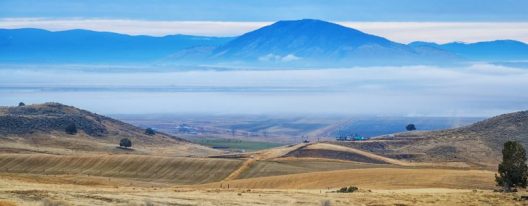SEFS Professor L. Monika Moskal awarded UW EarthLab Innovations Grant

SEFS Professor and Director of Precision Forestry Cooperative L. Monika Moskal and her research team have been awarded a UW EarthLab Innovations Grant. The study aptly named Fish, Fire, Food, and Floodplains: Healing Place and People was inspired by the Klamath Tribal members of the Ambodat Department. This study will address the interconnected challenges in the Upper Klamath Basin in south-central Oregon, and look at water shortages, toxic algae, endangered sucker fish, vulnerable salmon and overall habitat degradation. Many of these challenges have been exacerbated by fire suppression and water diversion in recent years.
Moskal, the study PI, will be working alongside a research team that includes:
- Debbie Johnson – Principal at Applegate Forestry, LLC
- Brittany Johnson – SEFS Assistant Professor
- Meghan Halabisky – SEFS Research Scientist*
- Keala Hagmann – SEFS Affiliate Assistant Professor
- Shahnie Rich – Environmental Scientist with The Klamath Tribes Ambodat Department
- Brad Parrish – Water Rights Specialist with The Klamath Tribes Ambodat Department
The project goals include:
- Generating a comprehensive inventory of incised channels that disconnect streams from floodplains and the Klamath Reservation which is roughly 1.2 million acres.
- Improve water quality and quantity by trapping sediment, increasing water storage and slowing flow rates.
- Foster climate change resilience of the Klamath Reservation’s ecosystem and communities through restoration efforts.
The study’s findings will be shared with the public and the Klamath Tribes through a story map that illustrates the challenges and potential recovery of the region’s ecosystems. The intention is to help communicate the benefits of climate-adapted restoration efforts and engage the community in both understanding and supporting these efforts.
*Halabisky is also a collaborator on another winning project in Cohort 5: Life, In Spite of it All: Water, Wetlands, and Reclamation in a Changing Climate. Read more about that project here.